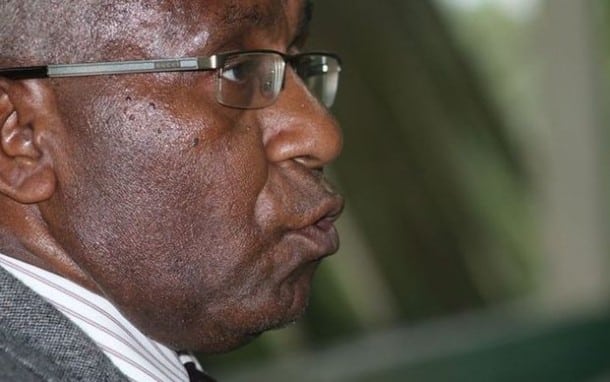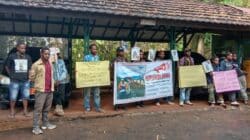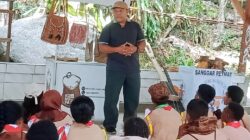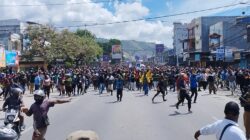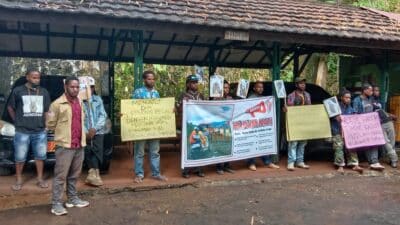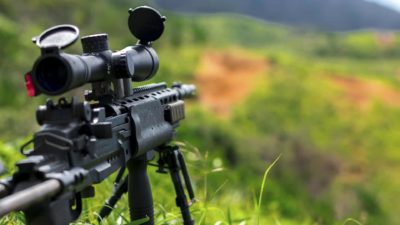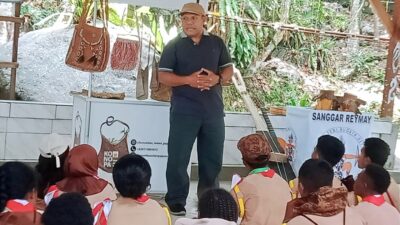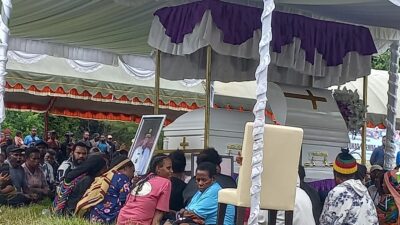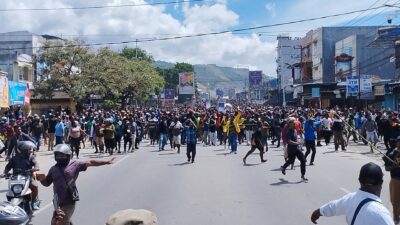
By Giff Johnson
Majuro, Jubi — A West Papua leader is the most optimistic he has been in years about gaining support from this week’s Pacific Islands Forum leaders meeting in Pohnpei, Federated States of Micronesia.
Support for West Papua human rights and self-determination has been building throughout the island region over the past year, said Octovianus Mote, the secretary general of the United Liberation Movement for West Papua, who lives in exile in the United States.
“Last year, the Melanesian Spearhead Group and Tonga were the only ones supporting us,” said Mote, who was in Majuro to meet President Hilda Heine and government leaders in advance of the Forum summit that opens Wednesday in Pohnpei.
“This year, we have support from Micronesian, Polynesian and Melanesian countries.”
Key to his optimism is the strong advocacy of Solomon Islands Prime Minister Manasseh Sogavare, who last year appointed the first government envoy for West Papua and provided government funding for his work.
In his meeting with President Heine, Mote said she “made it clear, the Marshall Islands will support us. For the Marshall Islands, human rights is the main issue.”
In the region, there are some Melanesian countries that do not have a clear policy on West Papua’s struggle for independence from Indonesia.
“But on human rights violations by Indonesia, there is no debate on it,” Mote said.
“Human rights violations and the struggle for independence are not different issues. Indonesia is violating West Papua’s basic right to self-determination.”
Mote believes their case for self-determination will finally get back to the United Nations Decolonization Committee for review. West Papua independence leaders have asked the Forum to support a call to the U.N. to review the case of West Papua.
The fact that Indonesia turned down the Sogavare government’s request for its West Papua diplomat to visit Jakarta speaks volumes about Indonesia’s attitude toward West Papua, Mote said.
“The aim is to open dialogue, but Jakarta says ‘no,’” he said, adding that island nations have been under intense pressure from Jakarta to ignore the West Papua issue.
“Indonesia’s arrogance is unbelievable,” he said.
The blunt truth, said Mote, is that West Papua is facing a policy of genocide by Indonesia, and if West Papua does not get help from the United Nations by 2020, it will be too late.
“Indonesia is using sovereignty as a means to slaughter people,” Mote said.
“Australia says this is an ‘internal issue.’ No, it is not. Sovereignty is not a reason to slaughter your own people.”
Human rights atrocities and genocide policies have been well documented by several human rights reports in recent years.
“Even the Indonesian Human Rights Commission admitted crimes against humanity (were committed by Indonesia in West Papua),” he said.
The military has killed hundreds of thousands of civilians by wiping out entire villages in remote areas with targeted military operations, he said. The Jakarta government encourages Indonesians to relocate to West Papua, and the military is paving highways and cutting down forests to make way for new settlements through West Papua.
“West Papua is so rich in natural resources,” Mote said.
“We see all these people coming in every day to fill up our country. When we try to defend our way of life and our land, we are accused of disrupting the government’s development programs.”
Despite more than a dozen nations raising concerns about human rights abuses by Indonesia during its Universal Periodic Review before the U.N. Human Rights Council in 2012, “Indonesia just ignores it,” he said.
He said access to social media and the Internet has been a turning point for West Papua.
“We praise the lord that today we have social media so we can get the word out internationally any time,” Mote said.
“It is really empowering the movement to free West Papua.”
But, he said, if there isn’t action in the next four years, it will be too late.
“2020 is the end,” he said.
“By then West Papuans will be less than 25 percent of the population, and we won’t be able to elect political leaders.”
Mote is hopeful that the Forum summit this week in Pohnpei will support taking the West Papua situation to the United Nations for review.
“Last year, the Forum agreed to send a fact finding mission to West Papua, but Indonesia wouldn’t allow it,” Mote said.
“They said it was ‘out of your mandate.’ There is no reason for the Forum to ask ‘allow us to come in’ again. It’s time to bring this to the United Nations. That’s what we want.” (*)


